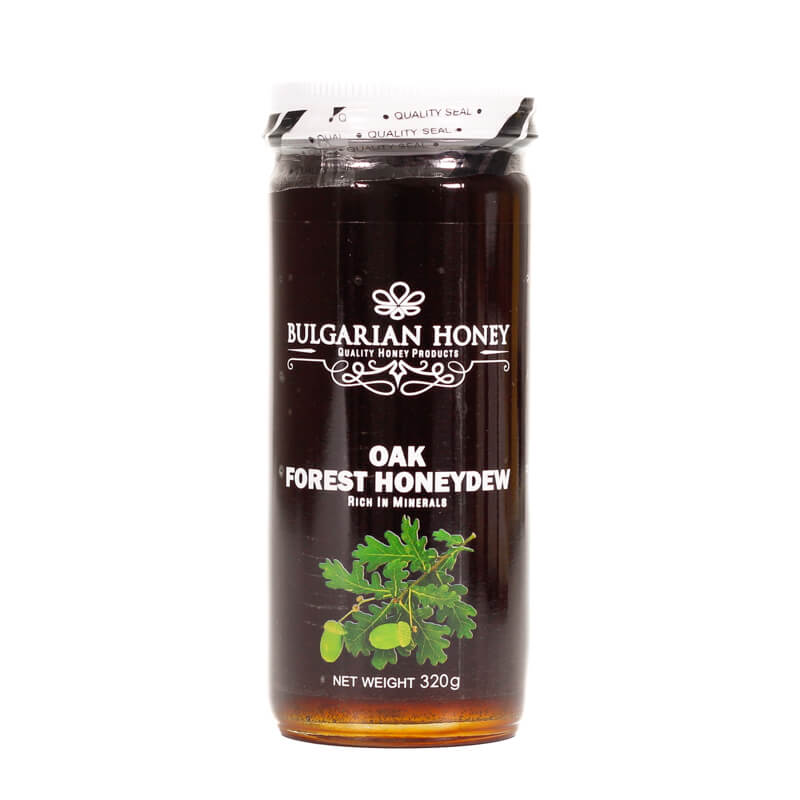
Bulgarian Oak Forest Honeydew Honey 320G


Honeydew honey or Forest honey is a type of honey made not from blossom nectar but from honeydew excreted by plant sucking insects such as aphids. It is usually produced from trees, both conifers and deciduous, although it may also produced from grasses and plants. Honeydew honey is higher in minerals and amino acids as well as higher molecular weight sugars in particular, melezitose and raffinose. Oligosaccharides are prebiotics that have a beneficial effect on bacteria in the digestive system. It tends to be darker, less sweet, less acidic and resists crystallization when compared to honey. Honeydew honey has higher electrical conductivity and ash content and tends to remain liquid and resist crystallization because of high fructose and low glucose levels, as well as a low glucose to water ratio. Bulgarian Honeydew Honey Bulgarian Honeydew Honey which is harvested in Strandja Mountain is one of the best in the world. Produced in oak forests, as the Strandja Mountain Oak Massif is the second largest in Europe and was declared as a national natural reservation area. The Strandja Mountain honeydew honey has dark to black color and distinctive aroma. The honeydew honey contains a large number of free amino acids, more important of which are aspartic acid, alanine, arginine, cysteine, glycine, glutamic acid, histidine, lysine, methionine and others. The most significant difference between honeydew honey and blossom honey is in its mineral substances. In this type of honey they are from 5 to 9 times more. Honeydew honey contains huge amounts of antioxidants that have anti-cancer effect and increases the hemoglobin. -Contains a large number of free amino acids -5 to 9 times more mineral substances than normal honey -Contains huge amounts of antioxidants -Made from honey dew produced from trees, grasses and plants
Subscribe for our latest news and be the first to know about our offers.
Size Guide
Bulgarian Oak Forest Honeydew Honey 320G